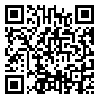BibTeX | RIS | EndNote | Medlars | ProCite | Reference Manager | RefWorks
Send citation to:
URL: http://jpcp.uswr.ac.ir/article-1-21-fa.html
Objective: The purpose of this study was to evaluate the effect of treatment on reducing the additional psychiatric symptoms in a sample of recovered depressed patients.
Methods: A sample of 354 remitted depressed subjects recruited through community advertisement and clinical practices of psychiatrists and psychotherapists were randomly assigned to mindfulness based cognitive therapy (MBCT), cognitive behavioural therapy (CBT), and treatment as usual groups. The mean age of the patients was 39.1 years, and they had an average of 2.19 episodes of previous depressions. Most patients were either married (50.8%) or single (41.0%). A lot of them were unemployed (60.7%), but nearly a third completed high school (35.6%) and half of them at least some post-secondary education (51.1%). Patients were assessed through the structured clinical interview for DSM-IV disorders (SCID) to be ensured of their fully recovered from their most recent episode of depression. Then, they were randomly assigned to 3 groups and assessed repeatedly through self-report measures, including brief symptoms inventory, and Beck depression
inventory.
Results: In this paper, the ancillary benefits of MBCT and CBT were explored. Results showed that in two active groups besides decrease in the rates of clinical depression, significant and lasting decreases in a range of other symptom scores of the brief symptom inventory occurred. These results suggest the benefits of the interventions in prevention programs for depression.
Conclusion: Both active treatments had significantly reduced relapse at 1–year follow up and affected additional symptoms compared to treatment as usual.
دریافت: 1391/5/20 | پذیرش: 1391/8/26 | انتشار: 1391/10/12
| بازنشر اطلاعات | |
 |
این مقاله تحت شرایط Creative Commons Attribution-NonCommercial 4.0 International License قابل بازنشر است. |

